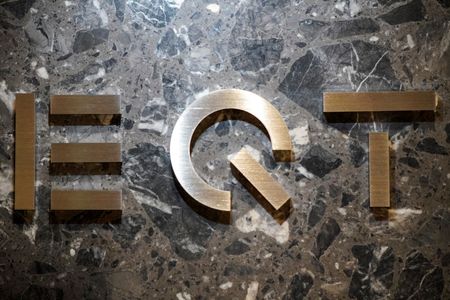By Emilio Parodi
MILAN (Reuters) -U.S. tech giants Meta, X and LinkedIn have lodged an appeal against an unprecedented VAT claim by Italy that could influence tax policy across the 27-nation European Union, four sources with direct knowledge of the matter said on Monday.
This is the first time that Italy has failed to reach a settlement agreement after bringing tax cases against tech companies, resulting in a fully-fledged judicial tax trial being launched.
According to the sources, this came about because the case went beyond agreeing on a settlement figure and sought to establish a broader approach focused on how social networks provide access to their services.
Italian tax authorities argue that free user registrations with X, LinkedIn and Meta platforms should be seen as taxable transactions as they imply the exchange of a membership account in return for a user’s personal data.
The issue is especially sensitive given wider trade tensions between the EU and the administration of U.S. President Donald Trump.
Italy is claiming 887.6 million euros ($1.03 billion) from Meta, 12.5 million euros from X and around 140 million euros from LinkedIn.
Meta, the parent company of Facebook and Instagram, Elon Musk’s social network X and Microsoft’s LinkedIn filed their appeals with a first instance tax court after mid-July, when the deadline for responding to a tax assessment notice issued by Italy’s Revenue Agency in March passed.
According to several experts consulted by Reuters, the Italian approach could affect almost all companies, from airlines to supermarkets to publishers, who link access to free services on their sites to users’ acceptance of profiling cookies.
It could also eventually be extended across the EU where VAT is a harmonised tax.
In a statement to Reuters, Meta said that it had cooperated “fully with the authorities on our obligations under EU and local law”.
It added that the company “strongly disagrees with the idea that providing access to online platforms to users should be subject to VAT”.
LinkedIn said it had “nothing to share at this time”.
X did not respond to a request for comment from Reuters.
ROME SEEN SEEKING EU ADVISORY
It is uncertain whether a full trial of the matter, which involves three levels of judgement and takes an average of 10 years, will go ahead.
Following discussions with the three companies, Italy is preparing as a next step to seek an advisory opinion from the European Commission, the sources said.
The Italian Revenue Agency will have to prepare specific questions, which the Economy Ministry will then send to the EU Commission’s VAT Committee, which meets twice a year.
Rome aims to submit its questions for the meeting scheduled to be held by early November, in order to receive the EU’s comments in time for the following meeting in spring 2026.
Italy’s Economy Ministry and Revenue Agency declined to comment.
The EU Commission’s VAT Committee is an independent advisory group. While its assessment will be non-binding, a “No” could prompt Italy to halt the case and ultimately drop the criminal investigation by Italian prosecutors, according to the sources.
The dispute is one of several between Europeans and U.S. Big Tech.
On July 11 Reuters exclusively reported that Meta would not be tweaking its pay-or-consent model further despite the risk of EU fines.
According to a Financial Times report on July 17, the European Commission has stalled one of its investigations into Musk’s platform X for breaching its digital transparency rules while it seeks to conclude trade talks with the U.S.
($1 = 0.8588 euros)
(Reporting by Emilio Parodi, editing by Giselda Vagnoni and Keith Weir, Kirsten Donovan)










